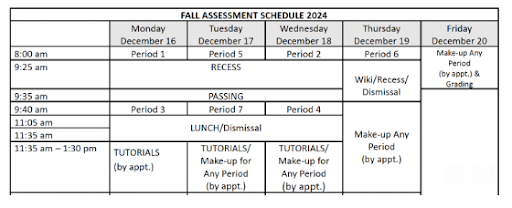High schools should prioritize financial literacy
High schools should prioritize their students’ financial literacy so that in the future they will know how to manage their money. Managing money is an essential part of daily life in adulthood. Students who have little to no financial literacy are more likely to go into debt.
Knowing this, why haven’t schools prioritized teaching the majority of their student body financial literacy rather than just a handful of students? Cindy Couyoumjian, a Certified Financial Advisor at Cinergy Financial and Advocate for Financial Literacy explains that times have changed when it comes to the financial literacy that people need. As a result, there are too few people who are willing to learn and teach modern financial literacy.
Now more than ever, students need to learn how to keep themselves afloat now before they graduate high school. 2021 Student Loan Debt Statistics conducted by Education Data Initiative show that “43.2 million student borrowers are in debt by an average of $39,351 each. The outstanding Federal Loan Portfolio is over $1.59 trillion. Approximately 42.9 million Americans with federal student loan debt each owe an average $37,105 for their federal loans.” Student loans are one of the major causes of people going into debt because they don’t know how to effectively manage strategies to pay their loans off.
Waipahu High School does have some classes covering financial literacy that are available to interested students, but even then these classes aren’t actively promoted for students to take as much as they should be. We live in a digital age where loans, credit, and banking are at our fingertips, but still many people don’t even know how to research the best financial choices for their lifestyle. Additionally, many people may lose out on opportunities like lower interest rates due to their lack of knowledge.
With this in mind, what should schools do to help students become more financially literate before they graduate? For one, create workshops; this way schools won’t have to focus on creating classes if they aren’t able to, and they may be able to invite professionals in the field to speak to students. Another option would be creating a mandatory financial literacy class, this would force students to learn about personal finance and the hardships that they may face as adults. If students learn how to manage their money, then they will not have as hard of a time transitioning into independent adults.
Kimberly Murphy is a 12th grader in the Academy of Professional & Public Services.






